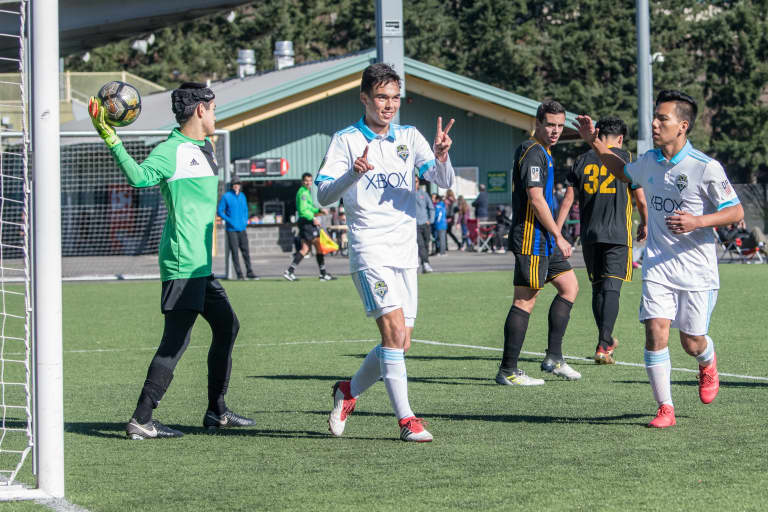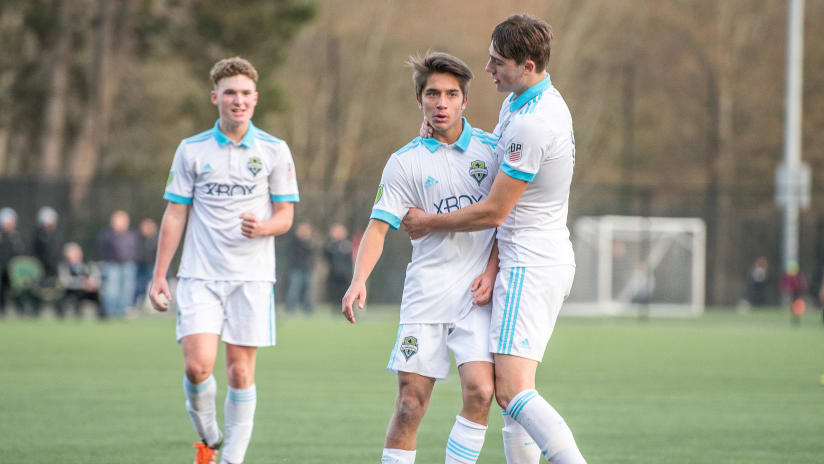Sounders General Manager & President of Soccer Garth Lagerwey hasn’t always been a PNW guy.
He grew up in Illinois, went to school at Duke, and as a professional goalkeeper he played for eight clubs, mostly in the Midwest and South. After law school at Georgetown and a stint as GM with Real Salt Lake, Lagerwey made his way to Seattle in 2015. All along the way, though, he knew of the impressive talent pool found in the Northwest.
“This region, this city has produced really good players for a really long time,” Lagerwey told Jackson Felts on this week’s episode of “Sounders Weekly" on Sports Radio KJR 950 AM. “The culture here is conducive to developing soccer players. That’s a real positive.”
When Lagerwey joined the organization in 2015, the academy was still in its infancy. Most notably, 20-year-old defender DeAndre Yedlin, the club’s first Homegrown Player, had just transferred to Tottenham. Beyond this major success story, there wasn’t a steady flow of talent coming from the academy system.
Three years later, the improvement is evident. The club has made five Homegrown signings the past three years, including forward Jordan Morris, and there are more on the way. There are currently six players on the S2 roster – ranging from age 15 to 22 – who are signed to USL contracts from the academy (Azriel Gonzalez, Nick Hinds, Shandon Hopeau, Alfonso Ocampo-Chavez, David Olsen, Sam Rogers and Ray Serrano). Five of them are still teenagers.

Enrique Montana reacts after scoring a goal against Silicon Valley Soccer Club | Quinn Width
“We’re signing guys when they are young,” Lagerwey said. “Our goal is to have them get 100 professional games before they turn 20. That’s largely through S2. We are going up through the U-17 level, then if you’re good enough, to S2, and if you’re good enough, to the First Team. We are making a lot of strides.”
For Lagerwey, success through the academy is not measured through the occasional star power that comes out of the system – it’s about creating a pipeline that consistently produces talent.
“You want to create systems that allow the most good players to succeed, and those guys will fight it out and the best will make it up and they will be better for the competition,” Lagerwey added.





